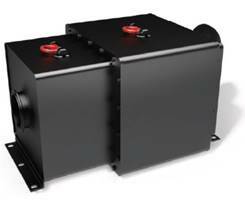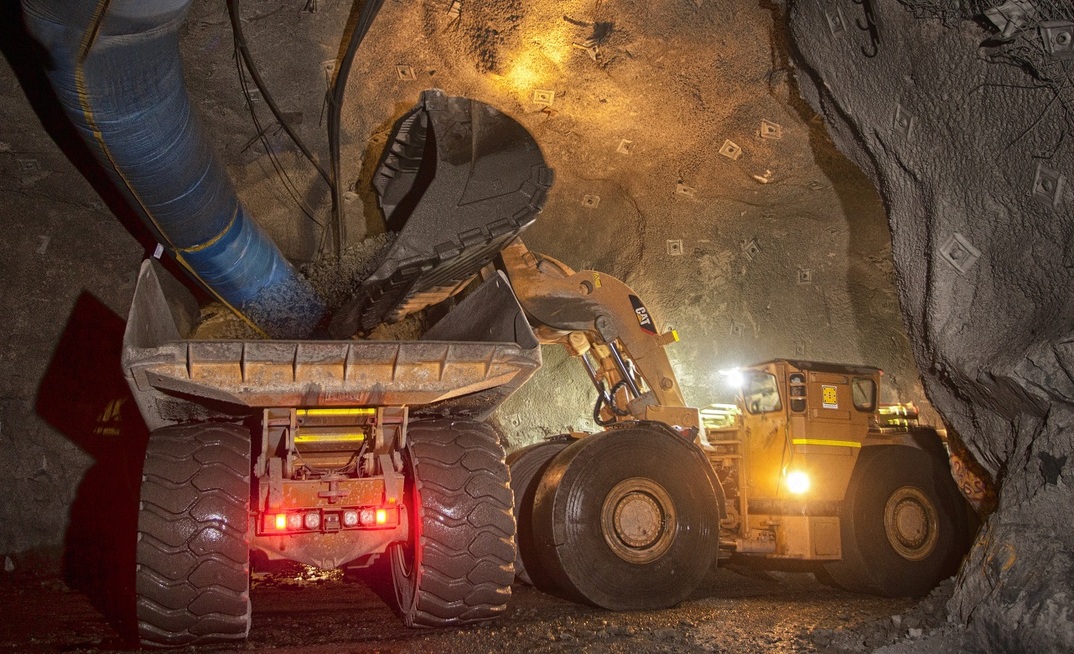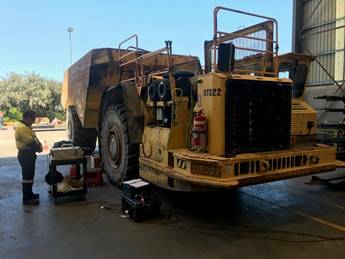At a time when hard-rock mine operators around the world are contemplating a return to electric equipment - this time, though, with modern battery-powered vehicles - advantages of diesel-engine machines are being called into question.
They have been the dominant mobile fleet option for hard-rock and coal mine operators for decades.
But Freudenberg Filtration Technologies mining manager in Australia, Stephen Gledhill says advanced filtration technology, incorporated in robust, fit-for-purpose vehicle emission control systems developed with Murray Engineering, could cancel out 99.9% of harmful particles at source.
Freudenberg, a global leader in filtration technology used in the food and beverage, manufacturing, power generation, energy, mining and other industries, became a dominant supplier of mine-vehicle emission control products to underground coal mines when it acquired Australia's Micro Fresh Filters nearly a decade ago.
Gledhill says classification by the International Agency for Research on Cancer of diesel engine exhaust as carcinogenic to humans, and adoption by various mining regulators of the same position, has considerably widened the mining industry's focus on new levels of emission management, and the impetus for change.
High-profile leadership by companies such as BHP has already seen some mines set atmospheric limits for emissions as low as 0.01 milligrams per cubic metre - 10-times lower than regulated levels.
"Other mining companies are really looking to follow suit," says Gledhill.
Byrnecut, one of the world's largest mining contractors and a company associated with Murray Engineering, has also been highly proactive in seeking to use available technology, and systems, to drastically cut diesel vehicle emissions in underground mines in which it works.
Freudenberg's links to Murray, formalised into a distribution and support agreement for the former's filtration and catalytic converter systems, go back about six years.
"We are the filtration and catalyst experts, and Murray Engineering is the expert in hard-rock mining fleet and maintenance," Gledhill says.
"We are talking 99%-plus reduction with our diesel emission management technologies"
"So we have collaboratively developed these systems to make sure they're performing at the upper echelon of performance filtration-wise and that they are also a straightforward bolt-on and mining-ready system that is durable and reliable in the underground environment.
"We are really focused on occupational health and safety rather than just environmental protection; solving the emission issue in the underground environment rather than just the emission issue in general. In the last few years the technology has become more robust and less complex, which is leading to increased adoption. The level of protection the diesel particulate filters provide is market leading across the industry.
"We are talking 99%-plus reduction with our diesel emission management technologies.
"The issue today is not just lung cancer, which has been the primary thing people talk about when the topic is diesel emissions. We're now talking about diesel nanoparticles - sub-micron particles - that go straight through the lung lining, and anywhere in the body. These particles have links to bladder and kidney cancers, and carcinogenic effects throughout the anatomy.
"There are also neurological issues in play because of the fact that the carbon is ending up on the brain. Studies by the likes of Edinburgh University show the carbon people are breathing in very quickly translocates to every part of the body.
"Mining regulations are based around emission mass - milligrams per cubic metre that are being pumped out of engines and therefore the mass that people are breathing in.
"Modern technologies focus not only on that mass but also the number of particles and the size of the particles. You can have a situation where the particles are so small that they're of negligible mass, so they're thought to be controlled from a mass point of view, but there can be just as many of these smaller particles and they can be more dangerous."
Gledhill said the Freudenberg solution included technology to analyse as well as deal with the problem.

Freudenberg diesel particulate filter for an Epiroc MT6020 underground haul truck
The company participates in a wide range of conferences and forums to continue to raise awareness of diesel-emission threats and effective management, including the upcoming AusIMM-organised international Mine Ventilation 2019 event which will feature diesel particulate matter (DPM) workshops and conference sessions.
Gledhill says the company is increasingly speaking with mining companies at a group level, rather than individual mine-site level, about strategies and technology deployments.
He says effective control of the underground environment in which people and vehicles interact is a critical short-term and longer-term strategic consideration.
"We anticipate that in the future there will be a mix of diesel-powered, electric and hybrid equipment in underground mines.
"The use of our filtration technology means that diesel is a viable alternative to electrification in terms of providing an equal environment to what an electric vehicle would.
"The overarching opinion before this point has been that diesel couldn't be made clean enough and a zero-emission engine - that is, an electric engine - was where people were looking to invest for the future. But with the latest technologies and the third-party verification we've had done on our diesel particulate filters showing a 99.9% reduction in particle emissions we can create an environment as clean from nanoparticles as an electrified fleet would offer.
"This gives mining companies the option to work with the flexibility of diesel that electrification may not necessarily have, and without the obvious risks, too, that come with electrification.
"Our technology really restores diesel in the energy matrix that can be used safely in the underground environment."
ABOUT THIS COMPANY
Murray Engineering
Contact:
Murray Engineering
54 Munday Avenue, Pinjarra
Western Australia 6208
Ph: +61 8 9550 5800
Email: info@murrayengineering.com.au
Web: www.murrayengineering.com.au
Murray Mining Services Mongolia LLC
Unit 303, City Center
Altangerel Street, 8th Khoroo
Sukhbaatar district
Ulaanbaatar-14200, Mongolia
Ph: +976-94059010/+976-99094814
Email: info@murrays.mn


























